Zachary Sergi is a queer author of Interactive Fiction, including the print Choices novels, Major Detours and So You Wanna Be A Pop Star?, and the digital Heroes Rise, Versus, and Fortune The Fated series. Zachary was raised in Manhattan, studied Creative Writing at Regis High School and the University of Pennsylvania, and now lives in Los Angeles with his husband, where he also writes for television. Learn more by following Zachary on Twitter, Instagram, and Facebook.
I had the opportunity to interview Zachary, which you can read below.
First of all, welcome to Geeks OUT! Could you tell us a little about yourself?
This is where I get to write a whole novel, right? Okay, I’ll keep it relatively brief. I’m a queer author of (mostly) interactive fiction. Nine digital novels for Choice of Games (I’m exhausted just saying that) across the Heroes Rise, The Hero Project, Versus, and Fortune the Fated interconnected books (which readers—not me, I swear!—dubbed the Sergiverse). I also write a whole bunch of episodic series for various apps that are in-universe. But in the past few years, I’ve gotten to translate my interactive style into two hardcover Choices novels, Major Detours and So You Wanna Be A Pop Star? I’m from the Lower East Side of Manhattan, have lived in LA since graduating college (an unspecified number of years ago), and am a massive geek at heart: I have the action figure and comic book collection to prove it.
What can you tell us about your latest book, So You Wanna Be A Pop Star?: A Choices Novel? What was the inspiration for this story?
The other things I am a geek for are pop music and reality television competitions (I won’t list them because I watch all of them). I’ve been an avid watcher of American Idol, X-Factor, and The Voice since the start, plus a fanatic for most pop girl groups. If you follow me on Instagram (which my editor does), you’d know this. So it was actually Britny (editor) who emailed me asking if I’d like to do another Choices novel about a pop group. I had mostly written science fiction stuff up until then, and our first novel together (Major Detours) was about a tarot card cult. But I actually had a long-running idea about going behind the scenes of a Fifth Harmony / One Direction type group who are thrown together against their will and become famous overnight, but to make them mostly queer and gender-diverse so they could be dating (and hating) each other. This became the basis for Pop Star, which is by far the juiciest and most dramatic novel I’ve ever written (he says with devious glee).
One of the things that stands out about this book is that it’s an interactive novel (which is pretty unusual for young adult fiction.) What made you decide to go with this type of format?
Unusual indeed—and in print, maybe one of a kind? The print CYOA novels are mostly middle-grade, right? Anyway, I had spent many years writing digital interactive novels (Heroes Rise, Versus) and honing in on my own unique style for the publisher Choice of Games. My interactive fiction is like layering an RPG on top of a novel. I’m not super interested in open-world plot control, but instead providing the basis for the reader to build a character and their relationships, then using a series of statistics to determine alternate scenes and endings. My goal when a reader gets to a big choice is to make them stop and think. There’s rarely any winning or losing, it’s about making tough calls for gaining and sacrificing and defining all at once.
It’s a long story, but I was on sub for a different print novel (This Pact Is Not Ours, more on this later) and my now-editor couldn’t take on that book but had read my interactive work and asked if I was interested in adapting that for a print format. The answer was obviously yes, and that’s how Major Detours was born. Britny (editor) and I put our heads together to invent a new interactive format for young adult, based on my body of work. Every formatting choice was made by us and the team, from how often to use choices, how they look, how many options—the list goes on. But the two biggest defining factors are that you always move forward in the page count and that there’s a personality-quiz like matrix in the back of the novel where you can plug in your choices and get a kind of reader horoscope, based on the decisions you made.
As a writer, what drew you to the art of storytelling, specifically young adult fiction?
My favorite titles tend to have something in common (Busiek’s Avengers run, Hickman’s X-Men run, the Crossgen universe, Buffy The Vampire Slayer, Everything Everywhere All At Once)—they all cross genre boundaries in a tone that is young adult/new adult adjacent. So I often say I write what feels organic to my instincts and influences in a blender brew, and it comes out young adult more often than not. I’m definitely a product of the WB-era teen TV dramas, and I’m so thrilled that Y2K vibe seems to be cycling back in (which I think has more to do with the age of editors/development execs/artists now in their 30s/40s and calling the shots, but who knows).
That said, I am so proud to be a queer author in this space now more than ever representing queer teens. Pop Star also has a drag queen PoV character—I was not intending this to be a bold statement back in early 2022, but alas here we are. But I also know so much of the young adult audience is actually made up of geeky adult readers (like me), drawn to the genre because there just feels like there is more freedom to tell really big, open-hearted, diverse, fun stories.
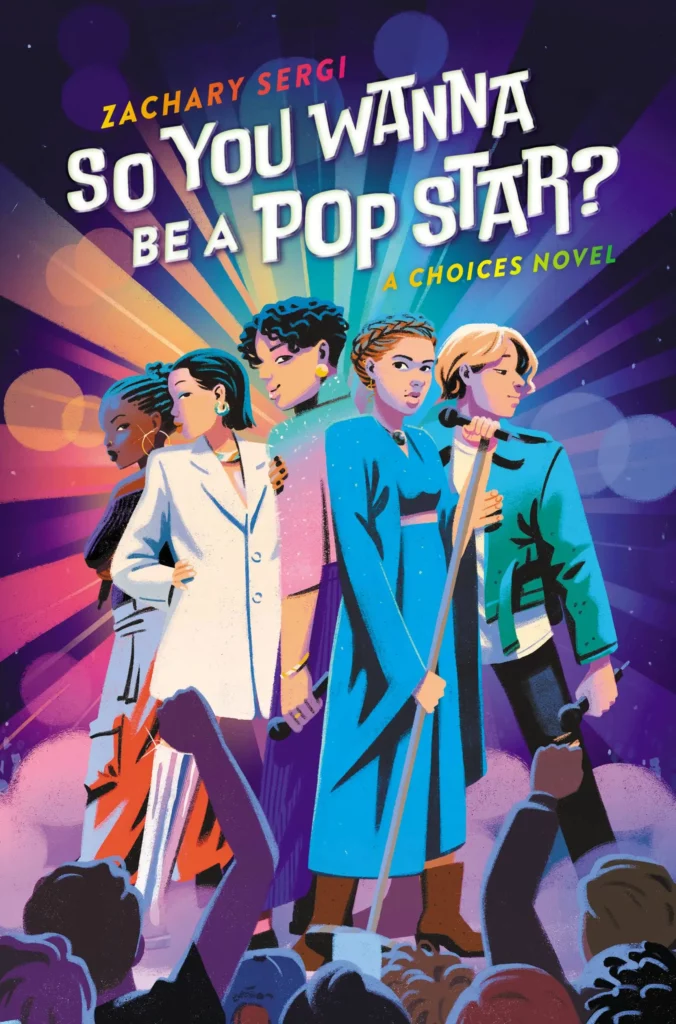
How would you describe your writing process?
Outlines so thick they accidentally turn into novels? The following is also blasphemous for a mostly-digital writer, but I draft everything by hand at first (even when writing in interactive formatting language/code). I can get into the flow if it’s just me and a pen and some paper, no computer or phone in reach. Whatever time I lose typing my drafts up, I gain back in focus-without-internet-procrastination and using the typing as an edit process. I’ll do it as long as my aging wrists allow. I am also very intense about curating specific playlists for projects (most of which can be found on my Spotify profile). Bouncing between so many mediums, genres, and titles, I find the mood of music really helpful in re-anchoring myself in a project (and the lyrics don’t interfere with my process, thankfully).
Many authors would say one of the most challenging parts of writing a book is finishing one. What strategies would you say helped you accomplish this??
First, it helps to understand there’s a pretty standard cycle every creator goes through. It’s usually something like THIS IS THE BEST IDEA ANYONE HAS EVER HAD to THIS IS THE WORST IEA ANYONE HAS EVER HAD back to Hey This Is Okay to I Can’t Look At This One More Second. You bounce between those poles until a deadline arrives, basically. These downturns are inevitable, and I think that’s where many creators get stuck. Also, setting very small and realistic daily goals is everything, otherwise, the whole thing can feel daunting. Lastly, it’s essential to experiment and find a writing process that works for you—it usually involves lots of mental trickery, but the best guiding principle is that there is no such thing as a bad first draft.
Growing up, were there any stories in which you felt touched by/ or reflected in? Are there any like that now?
I mentioned the big ones already (Buffy and EEAAO), but The Perks of Being a Wallflower always really hit home with me. It was books like The Magicians, The Hazel Wood, We Were Liars, and Surrender Your Sons that made me want to return to YA publishing after my digital run.
As a writer, who or what would you say are some of your greatest creative influences and/or sources of inspiration in general?
It used to be a much more unique answer when I discovered it in college long before the TV show, but The Handmaid’s Tale remains my favorite novel of all time. It does everything I ever want to as a writer in terms of character, prose, and societal allegory. I’m also constantly blown away by the work of Kristin Cashore. If you haven’t read Jane, Unlimited—run don’t walk. That book blew my plotting mind, and I write complicated interactive fiction for a living.
What are some of your favorite elements of writing? What do you consider some of the most frustrating and/or challenging?
I love outlining and editing. First-drafting is maybe my least favorite part of the process—but there’s also nothing like the feeling of being in flow on a project and feeling things click. Outside of process, I find being a writer in the social media age—where we are basically expected to be full-time PR/Marketing people and author personalities who are also subject to the full whim of every criticism ever uttered about us—really exhausting. But on the flip side, we can reach and connect to readers in a truly unprecedented way, which is always what makes every ounce of perspiration worth it.
Aside from your work, what are some things you would want others to know about you?
I am a rabid Bravo / Real Housewives fan. If anyone is looking for someone to write The Real Housewives of Earth 616, I’m your writer. But we said no work…Kelly Clarkson is my diva avatar of choice. Symone is my favorite drag queen. I have always hated and will always hate melted cheese. And I was outed in high school by someone who eventually became a very famous pop star, a story I wrote into Pop Star.
What’s a question you haven’t been asked yet but that you wish you were asked (as well as the answer to that question)?
Will you accept our invitation to be on the next season of The Traitors? (The answer is yes).
What advice might you have to give for other aspiring writers?
The only thing that makes you a writer is actually writing, the rest is a matter of scale. If you can find a day job you love (or feel fulfilled by at least), take that day job and write on the side. If you absolutely have to write full-time, be prepared to make a lot of sacrifices, because most working writers live paycheck to paycheck. We hear a lot about the big success stories, but they’re the 1% of the 1% who ever get published. Finding an agent and an editor is largely not about your talent level or the quality of your writing, it is more like dating—it’s about finding your writing love match who gets you. Never spend more time absorbing a review than it took a person to write it.
Are there any other projects you are working on and at liberty to speak about?
Yes! So remember that novel I mentioned? This Pact Is Not Ours is a non-interactive (gasp) queer horror novel and it is being published this October by a killer new indie queer press (they have 5 books out right now, each one of them stellar): Tiny Ghost Press. The novel is another genre layer for me, my homage to early Kevin Williamson, I Know What You Did Last Summer set on Dawson’s Creek, with a dash of Stranger Things and We Were Liars. Here’s the premise: four college-bound best friends return to the idyllic campsite their families have visited every summer, only to discover they are cursed by an ancestral pact that threatens to tear their friendships–and the world—apart. It’s maybe the most personal and horrifying work I’ve ever written, and arriving just in time for spooky season (10.3.23). Preorders should be up next month!
Finally, what LGBTQ+ books/authors would you recommend to the readers of Geeks OUT?
In no particular order, these fellow young adult authors all have A+ queer books, and all happen to be absolutely lovely people too: Robbie Couch, Emery Lee, Adam Sass, Erik J. Brown, Aaron Aceves, Claire Winn, and Adib Khorram, to mention just a few. Their (multiple!) titles can be found wherever books are sold.
Header Photo Credit Chase Baxter

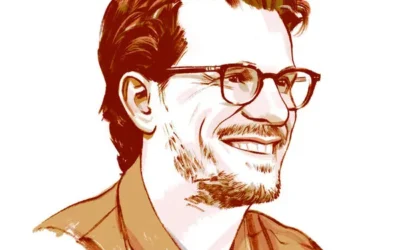
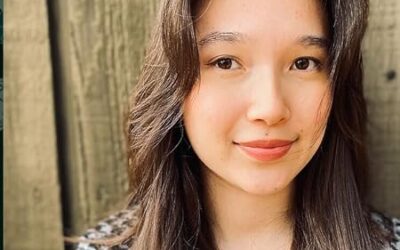
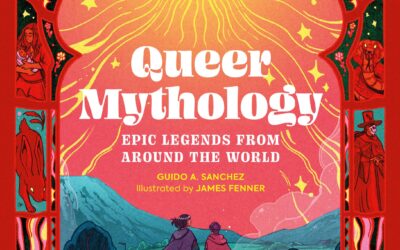
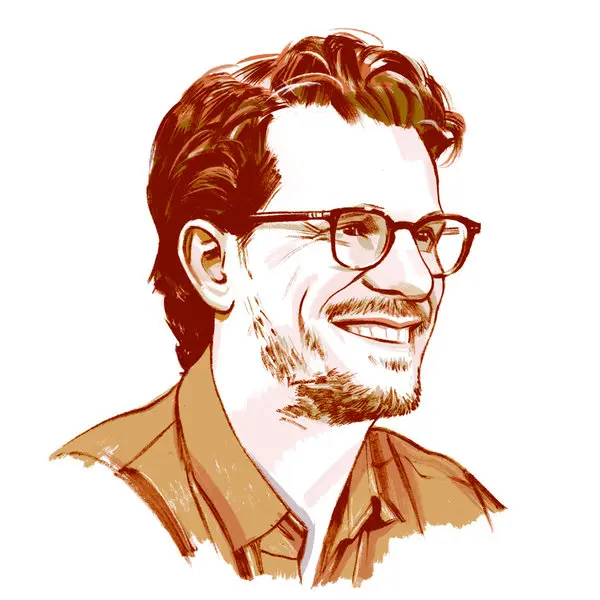
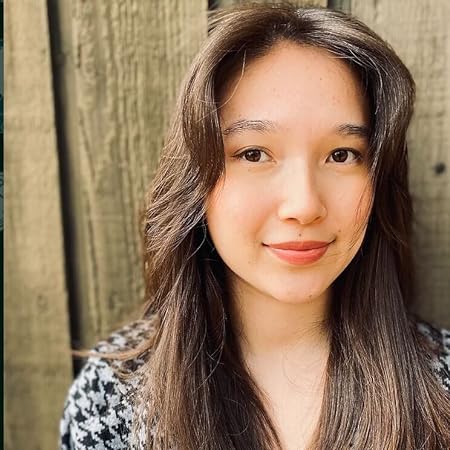
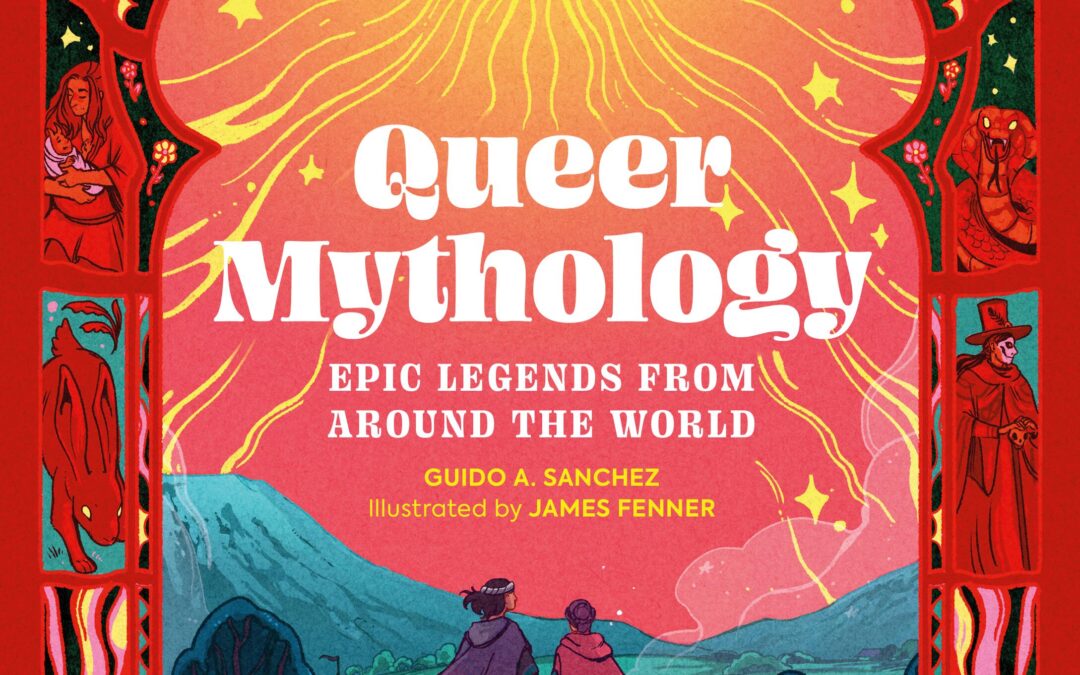
0 Comments